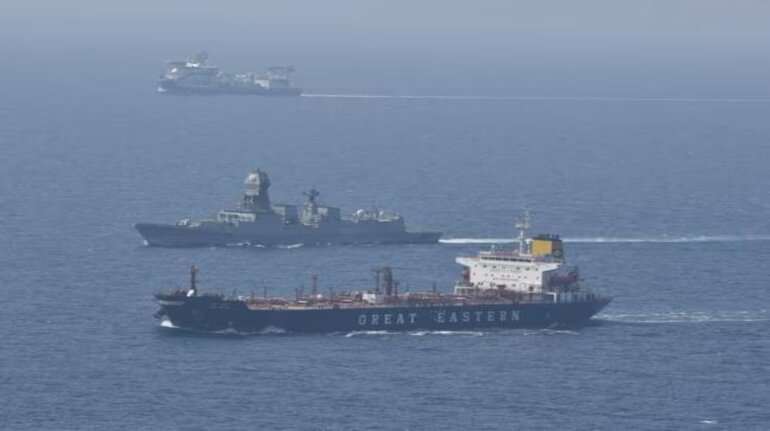In Visakhapatnam, An official statement on Sunday said that the sea part of MILAN-2024, a multi-national naval exercise held every two years and hosted by the Eastern Naval Command of the Indian Navy, began with a show of cooperation between ships and planes from friendly foreign countries.
The high-intensity sea part of the event, which includes the air, surface, and underwater domains, started yesterday and showed off naval strength.
“Day two of the sea phase witnessed a harmonious blend of mutual understanding and interoperability as participating ships operated collaboratively in the Bay of Bengal,” stated the ENC in the release.
The fact that the operations involved people from different countries brought them together and helped them learn more about each other’s operational philosophies and processes. During the sea phase, advanced drills are held that cover all three aspects of maritime warfare. These include firing weapons at targets on the ground and in the air at high speeds, fighting submarines, landing on other ships’ decks, and carrying out operations. As part of other activities, seamanship skills like replenishment at sea were improved, which reflected the dedication to improve maritime capabilities and encourage international cooperation.
“The MILAN–2024 sea phase shows how dedicated the participating countries are to promoting peace, stability, and interoperability in the maritime domain.” The press release said, “As the exercise goes on, the world sees a united front of naval forces actively building bridges and strengthening global maritime security.”
The sea phase, which is set to happen from February 24 to 27, will include 15 ships and one aircraft from friendly foreign countries, as well as ships, submarines, and planes from the Indian Navy. There are also Indian aircraft carriers Vikramaditya and Vikrant taking part in the naval drills. These cover all areas of maritime warfare, such as air, surface, and subsurface. Another goal of MILAN-2024 is to hold complex and advanced exercises that will make it easier for all participating countries to work together as a single task group at sea.
